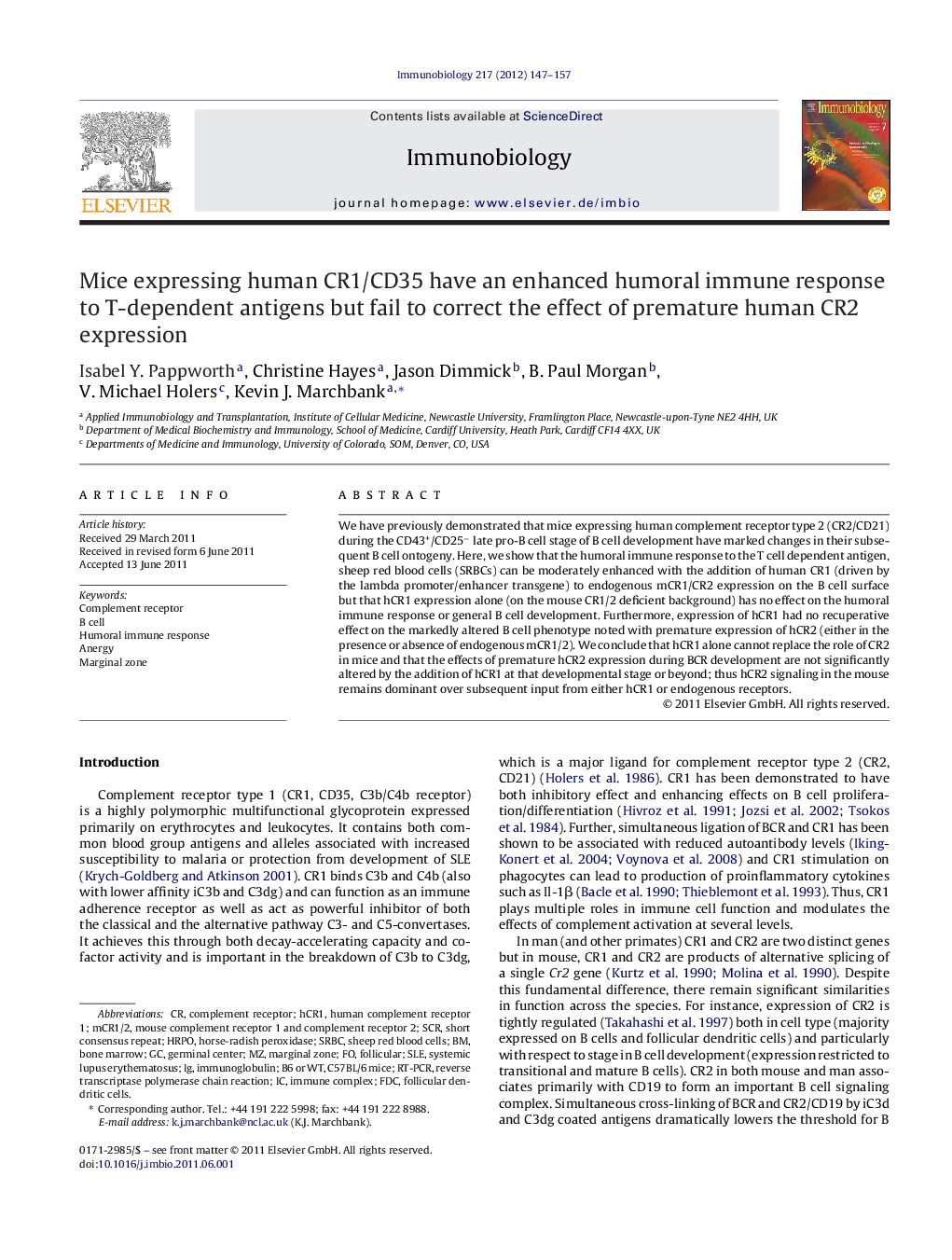| Article ID | Journal | Published Year | Pages | File Type |
|---|---|---|---|---|
| 10941088 | Immunobiology | 2012 | 11 Pages |
Abstract
We have previously demonstrated that mice expressing human complement receptor type 2 (CR2/CD21) during the CD43+/CD25â late pro-B cell stage of B cell development have marked changes in their subsequent B cell ontogeny. Here, we show that the humoral immune response to the T cell dependent antigen, sheep red blood cells (SRBCs) can be moderately enhanced with the addition of human CR1 (driven by the lambda promoter/enhancer transgene) to endogenous mCR1/CR2 expression on the B cell surface but that hCR1 expression alone (on the mouse CR1/2 deficient background) has no effect on the humoral immune response or general B cell development. Furthermore, expression of hCR1 had no recuperative effect on the markedly altered B cell phenotype noted with premature expression of hCR2 (either in the presence or absence of endogenous mCR1/2). We conclude that hCR1 alone cannot replace the role of CR2 in mice and that the effects of premature hCR2 expression during BCR development are not significantly altered by the addition of hCR1 at that developmental stage or beyond; thus hCR2 signaling in the mouse remains dominant over subsequent input from either hCR1 or endogenous receptors.
Keywords
RT-PCRFDCSRBCHRPOAnergyhorse-radish peroxidaseimmunoglobulin short consensus repeatFollicular dendritic cellsfollicularB cellSystemic lupus erythematosusSLEimmune complexGerminal centerbone marrowmarginal zoneC57BL/6 micereverse transcriptase polymerase chain reactionHumoral immune responsesheep red blood cellsComplement receptorSCR
Related Topics
Life Sciences
Biochemistry, Genetics and Molecular Biology
Cell Biology
Authors
Isabel Y. Pappworth, Christine Hayes, Jason Dimmick, B. Paul Morgan, V. Michael Holers, Kevin J. Marchbank,
